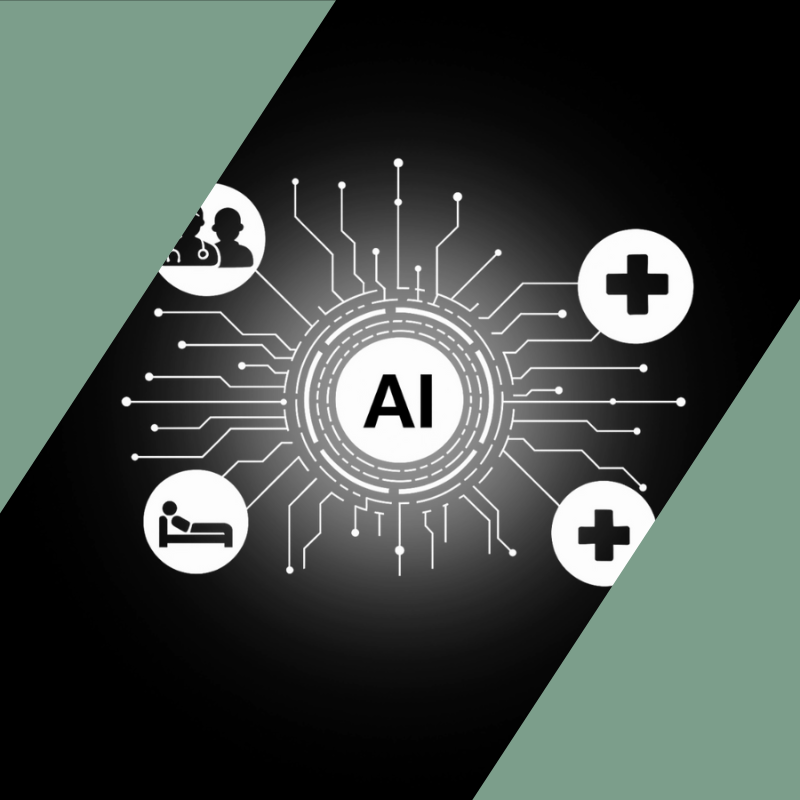Behind the Breakthrough: Q&A with Kai Eberhardt, CEO and Co-founder of Oviva

Behind the Breakthrough: Q&A with Kai Eberhardt, CEO and Co-founder of Oviva
Kai Eberhardt transformed a personal cancer diagnosis in his twenties into a lifelong commitment to improving patient empowerment and healthcare accessibility.
Diagnosed with cancer in his early twenties, Kai Eberhardt quickly learned how disheartening it can feel to navigate the healthcare system without information or agency. That experience became a transformational force, first pushing him toward deeper medical knowledge, then through a PhD in medical physics, and ultimately into the business of healthcare.
He co-founded Oviva in 2014 with engineer Manuel Baumann to confront one of the most widespread, but underserved, health challenges in society: chronic weight-related conditions (such as obesity and type 2 diabetes). Despite the abundance of clinical evidence showing that behavior change and lifestyle interventions can be highly effective, few systems were designed to deliver them at scale, and even fewer offered sustained, patient-centric care accessible to everyday lives.
Eberhardt and his team saw an opportunity to reimagine care delivery, starting with something simple: a secure, compliant chat app connecting patients and their care teams. Over time, that communication layer evolved into Oviva’s full-stack digital care platform, now used by more than one million patients across the UK and Europe.
On the heels of Oviva’s expansion into cardio-metabolic conditions, and after nearly a decade of building credibility and capability in systems like the National Health Service (NHS), Eberhardt shares what it takes to turn frustration into innovation, how the company is scaling with purpose, and why technology is only one part of the solution.
What gap in the healthcare system were you aiming to address in founding Oviva?
The idea for Oviva emerged from a common challenge in obesity treatment—most patients don’t continue treatment after one or two visits. It just isn’t practical for patients to regularly attend sessions in-person despite a demand for care.
What stood out was that these same patients were always on their phones, and unlike other areas of care, weight management doesn’t require physical exams, lab work, or imaging. It largely includes education, coaching, and real-time support. So, we asked: what if we digitized the same care that we provided in-person and delivered it on their phones, anytime, anywhere? That would make it dramatically more accessible, and likely more effective, too.
Can you talk more about how this model helps address affordability and equity?
People managing chronic conditions often juggle jobs, childcare, daily stress – and weight-related health is important, but not always urgent. That makes it easy to de-prioritize care, especially when it requires a visit to a doctor’s office on a random Wednesday afternoon.
Making care available on your phone, on your own schedule, changes everything. For example, look at the NHS Diabetes Prevention Programme – about 20% of people completed the in-person model, but closer to 70% completed Oviva’s digital version. That’s a massive difference.
Virtual care also opens the door to serving culturally and linguistically diverse communities. With digital delivery, you can tailor the content, language, and nutrition guidance for many different patients. Curating care is almost impossible to do well in a one-size-fits-all, in-person group setting.
You integrate clinical, nutritional, and psychological care. What makes that approach so essential?
Obesity is multifactorial – you just can’t treat it through one lens. Some people need help with nutrition education, some have complex psychological patterns or trauma, and now we also have powerful medications that should be managed by doctors. No one discipline can cover it all.
Not every patient needs every service, but having a full stack available is essential to delivering effective care. We learned this from the best in-person programs –where coordination across teams made all the difference, though it was resource-intensive and hard to sustain. By operating digitally, we can bring those same multidisciplinary perspectives together without the limits of geography or scheduling.
What makes Oviva truly different from other players in your space?
We’re with our patients every day. That’s the biggest difference. Face-to-face models might give you 30 minutes with a clinician once a month. We’re a daily companion – logging meals, giving feedback, coaching, and support throughout the day. That consistency leads to better outcomes.
We’ve published more than 90 papers showing that we outperform in-person care, and because we’re digital, we can do it at lower cost and with broader reach. We’re essentially industrializing something that used to be artisanal – making personalized, behavior-change therapy highly scalable.
Regarding Oviva’s role within the NHS – what does it take to build innovation and credibility in a system as rigorous and complex as that one?
Evidence, first and foremost. I’ve always believed in backing up what we do with strong data, while publishing results publicly to build trust and demonstrate transparency.
After that, it’s about communication – having the skills and patience to speak to very different stakeholders across the NHS. And finally, it’s about partnership. We don’t try to replace services; we instead think about how we can add value to the system through better access and efficiency. This mindset helps us prove we’re here for the long haul.
You have talked about being driven by your own personal experiences in the healthcare space. Can you share how that energy helped shape your journey as a founder?
I’ve always been a pretty intense and action-oriented person. Frustration, for me, serves as a powerful motivator because it offers clarity and urgency. I don’t sit still when I see something broken. I’m not afraid to make decisions or move fast. I think that drive helped me do something many would consider irrational – starting a health tech company from the ground up in a pretty complex space.
Obesity is a field that often carries judgment or stigma. How do you lead with compassion and evidence in that environment?
Honestly, that’s one of the most fulfilling parts of what we do. Many of our patients haven’t received good care before – they’ve been judged or dismissed by the system. When we help them see real progress, it’s incredibly rewarding.
It’s not just for the patient’s benefit either. We’ve shown, with data, that our program reduces patient sick days by about a third within six months. That translates to added productivity in the workplace, tax revenue, and long-term cost savings – things that help the entire system. So, when people ask if this population is “worth investing in,” our results make the answer abundantly clear.
What advice would you give to other founders trying to build something in or alongside a public health system?
You need grit. It takes a long time to get through validation, adoption, and scaling inside a system like the NHS. The process can be very frustrating, especially when you know your solution could help people immediately, but adoption takes time.
Some delays are for good reasons, like needing strong evidence. Other delays are due to competing interests or systemic inertia. You must keep showing up and pushing forward. The reward is that once you’re in, and your model works, it’s incredibly sticky and impactful.
What excites you the most about what’s coming next?
We’re about to launch our hypertension solution, pending final regulatory approvals. It’s been in the works for two years and is a huge opportunity to build something that serves both patients and doctors more effectively – especially in how we manage data, daily insights, and ongoing support between visits.
The role of AI in all of this is just getting started. Our AI-first care model has the potential to transform patient support, making delivery more efficient and effective. We can provide even better continuity of care between doctor visits and better inform doctors for those visits. Since the ChatGPT moment, we’ve been embedding more AI features into our product, making care more scalable and improving outcomes. AI technology and Oviva are evolving rapidly – and I can’t wait to see how far we can go.


